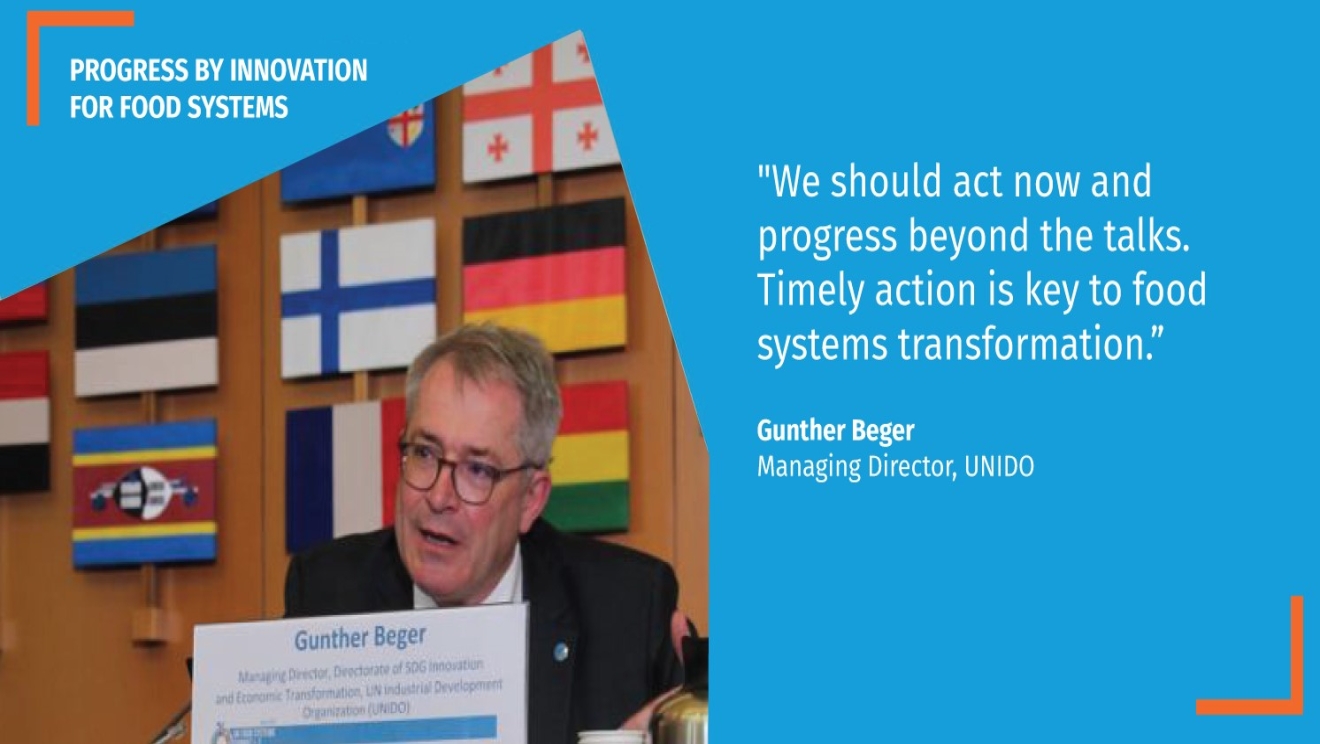

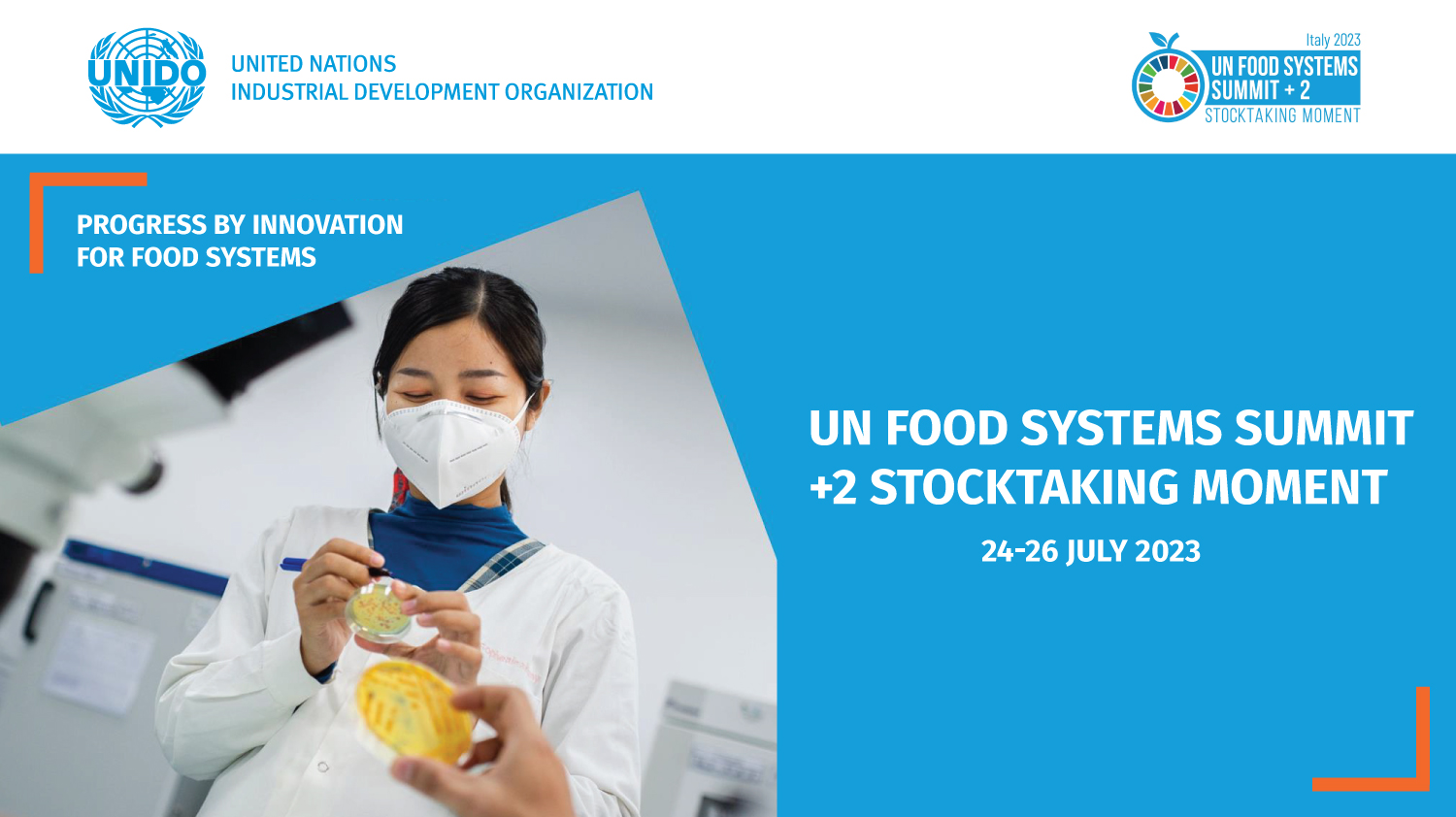
When
24 – 26 July 2023
Where
Rome, Italy
Online via the virtual Platform
Building on the momentum of the 2021 Food Systems Summit, the UN Food Systems Summit +2 Stocktaking Moment took place in Rome, Italy from 24 – 26 July 2023, at the premises of the Food and Agriculture Organization of the United Nations (FAO). It was hosted by Italy, in collaboration with the Rome-based UN Agencies (FAO, IFAD, WFP), the UN Food Systems Coordination Hub and the wider UN system. The event aimed to create a conducive space for countries to review commitments to action that were made during the Summit, share stories of success and early signs of transformation, maintain the momentum for bold acceleration and bold action to further the resilience of food systems, advocate for their adaptation to climate change, ensure they contribute to communities’ resilience to further shocks and crises, and boost the achievement of SDGs.
UNIDO’s contributions to the event
UNIDO's experience in food systems transformation demonstrates its commitment to leveraging industrial development for sustainable and inclusive agriculture, and its role as a key partner in the global efforts to achieve the Sustainable Development Goals.
With its mandate to promote inclusive and sustainable industrial development, UNIDO recognizes the critical role of the agri-food sector in achieving sustainable development milestones and fostering economic growth.
UNIDO’s key messages
Gunther Beger, Managing Director, Directorate of SDG Innovation and Economic Transformation at UNIDO, shared insights in the Leadership Dialogues “Healthy Diets, Cultures and Tradition: Lessons from the Mediterranean Diet” and “Food Systems for Shared Prosperity: Achieving equitable, inclusive and sustainable economic prosperity in agrifood systems and rural development”. “We should act now”, Mr. Beger emphasized, “and progress beyond the talks. Timely action is key to food systems transformation.”

On the sidelines of the event, Mr. Beger held in-depth discussions with the Rome-based UN Agencies, the Food and Agriculture Organization (FAO), the International Fund for Agricultural Development (IFAD), and the World Food Program (WFP), to strengthen the cooperation in food systems transformation, including for food loss and waste reduction.
Mr. Beger discussed with Thouraya Triki, Director, Sustainable Production, Markets and Institutions Division, IFAD, on strengthening the cooperation between the two organizations, emphasizing the importance of investing in rural economies and food systems.
Mr Beger reaffirmed the commitment for cooperation between UNIDO and FAO, during meetings with Beth Bechdol, Deputy Director-General and Máximo Torero, Chief Economist.
With Ute Klamert, Assisstant Executive Director, Partnerships and Advocacy Department, WFP, Mr Beger emphasized the importance to deepen concrete cooperation between the two organizations in food systems, especially in the fields of reducing food loss and waste , supporting the smallholder farmers and finding innovative solutions to the multiple challenges we face. Both organizations agree to build stronger partnerships and drive changes so that zero hunger is possible.
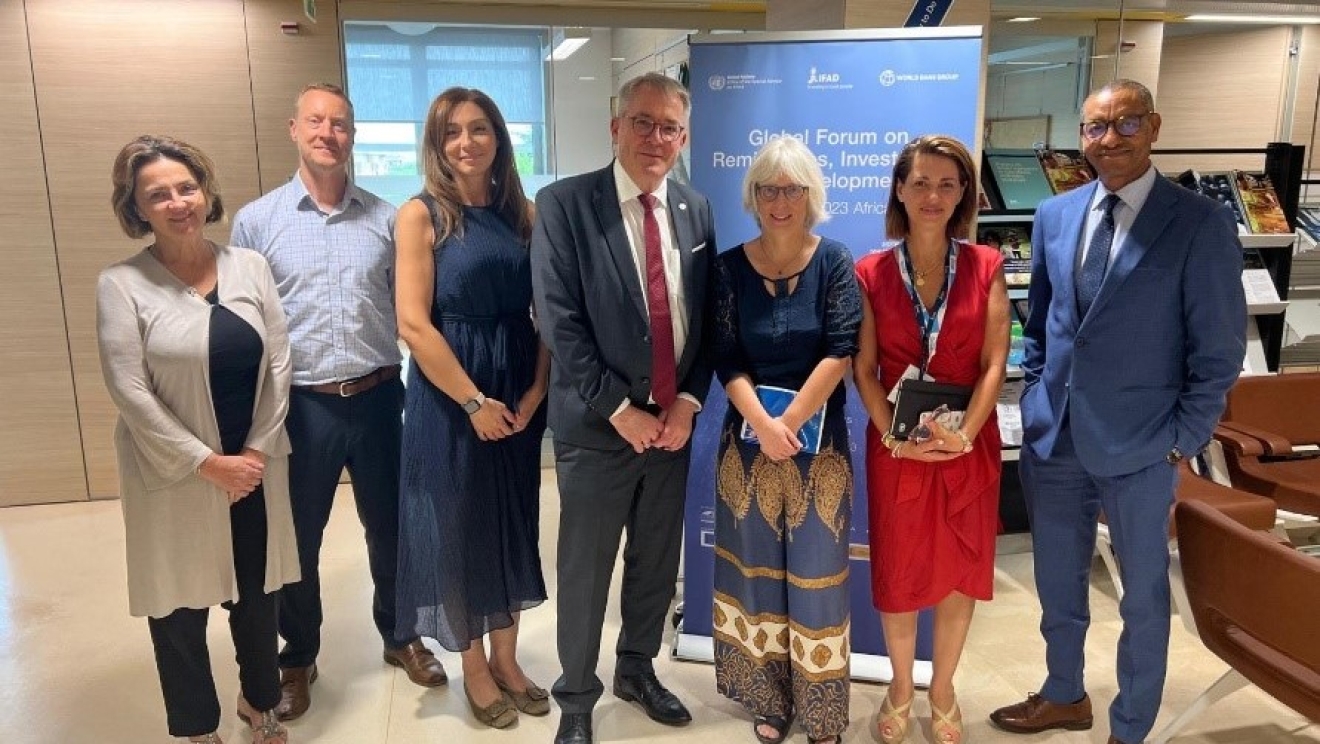
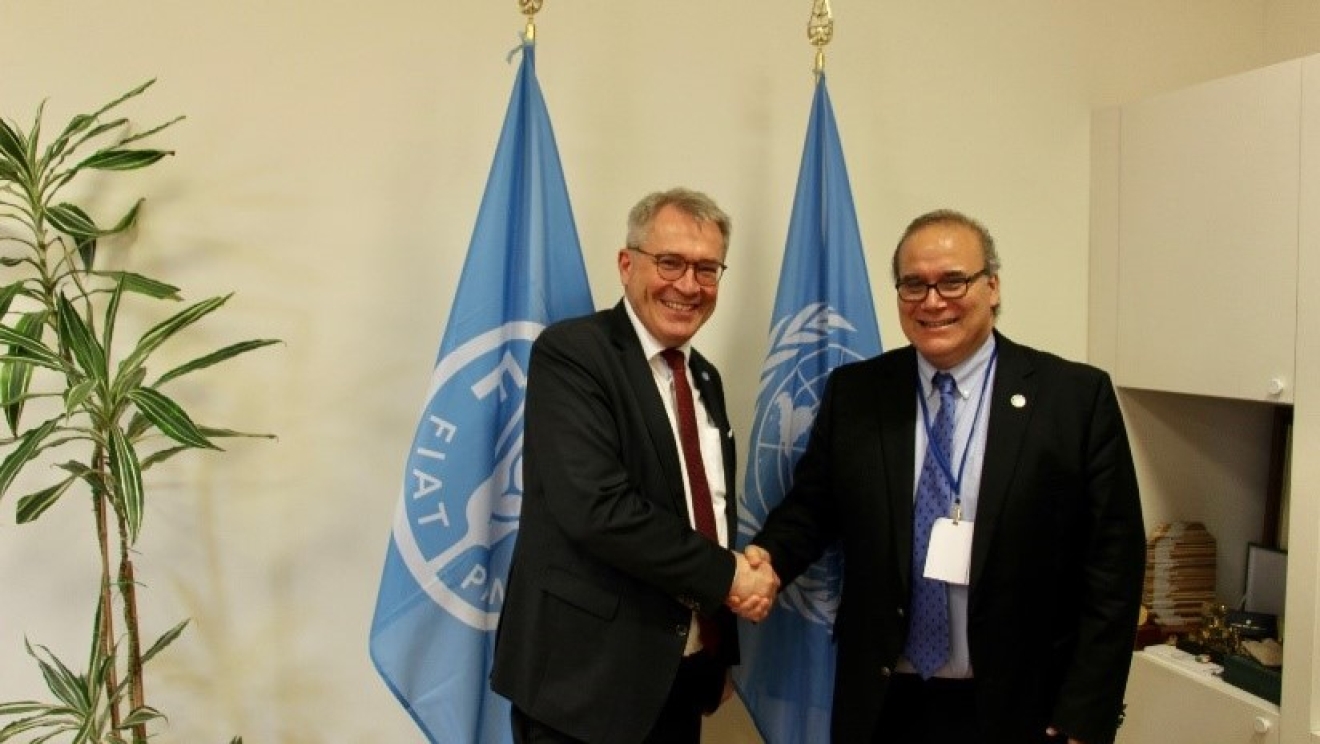
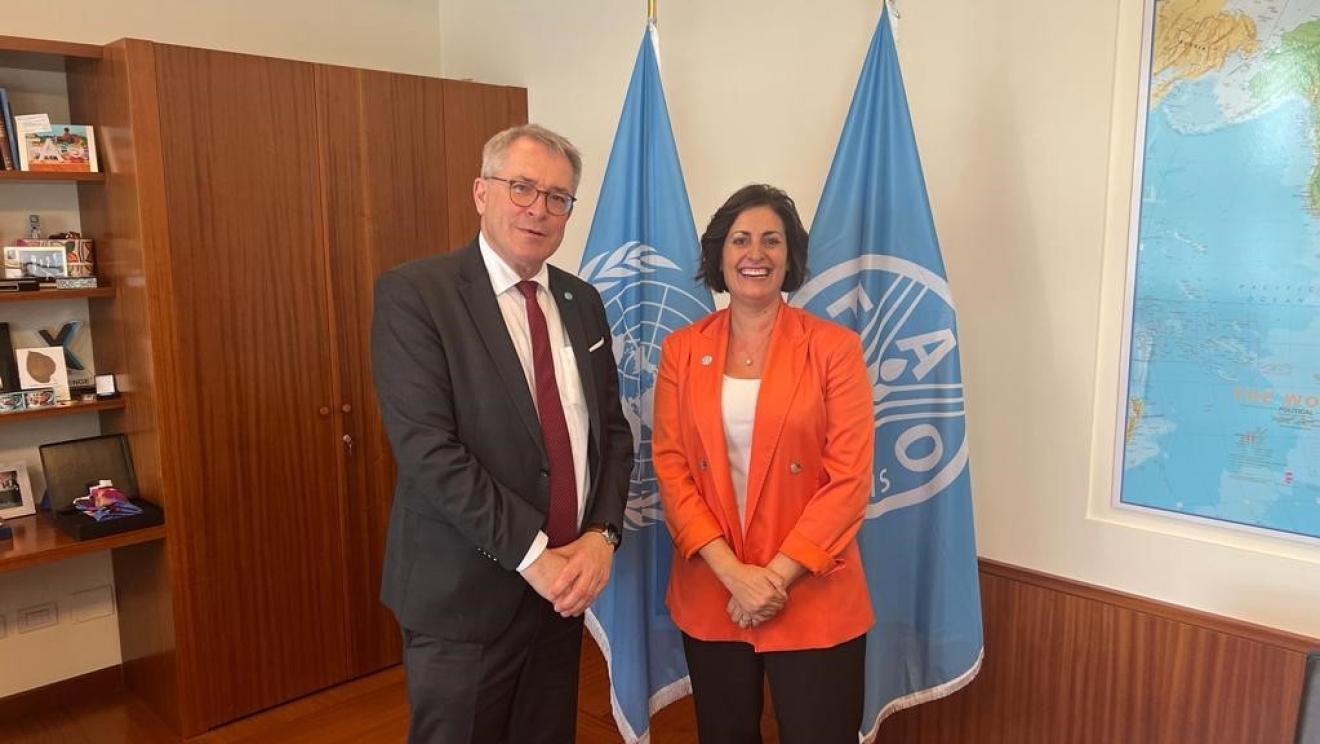
UNIDO launched the #UNIDO4FoodSystems campaign:
#UNIDO4FoodSystems campaign called for experience sharing, about the major challenges we now face and / or solutions we have come up with along the food value chain.
More details : Twitter Facebook Linkedin Instagram
All events could be watched on virtual campus, where UNIDO booth was also featured.
UNIDO work towards Food Systems Transformation
Through sustainable industrialization, technology and knowledge transfer, and investment in food systems transformation, UNIDO works to achieve food security so that all people, at all times, have physical, social and economic access to sufficient, safe and nutritious food.
UNIDO works through investment promotion in agribusiness, value chain analysis and upgrading, technology and knowledge transfer, and enabling SME growth to boost private sectors and economies, all contributing to rural job creation and food security. With our efforts, a world without hunger is possible.